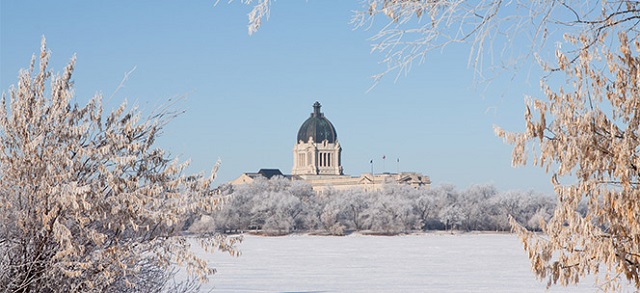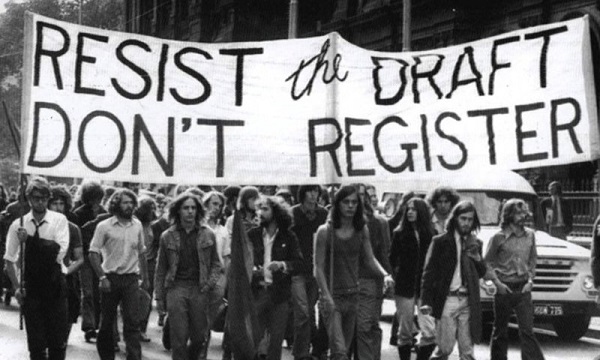Opinion
Feds facing the consequences of the costly carbon tax

From the Canadian Taxpayers Federation
Author: Gage Haubrich
Ottawa unveiled an unorthodox carbon tax communications strategy in Saskatchewan: threats.
Saskatchewan minister responsible for SaskEnergy, Dustin Duncan, recently announced that the Saskatchewan government will not be sending the federal government money to cover its refusal to charge Saskatchewanians the carbon tax on home heating.
In October, Saskatchewan announced that it would stop collecting the federal carbon tax on home heating in the province. The provincial government estimates this will save the average family who uses natural gas to heat their home $400 this year. That’s enough to pay for a couple trips to the grocery store, and with the current prices at the store, families need all the relief they can get.
In response, federal Minister of Energy and Natural Resources Jonathan Wilkinson shot back at Saskatchewan, announcing that because of this decision, Saskatchewanians will no longer be receiving the federal government’s carbon tax rebate.
Premier Scott Moe then pointed out the absurdity of the feds by highlighting that Saskatchewanians are still paying the carbon tax on gas, diesel and propane.
This whole mess started because Prime Minister Justin Trudeau backpedalled on his carbon tax and decided take it off heating oil. It’s a fuel primarily used in Atlantic Canada and used by almost zero Saskatchewanians.
Despite the exemption in Atlantic Canada being very similar to Premier Scott Moe’s plan in Saskatchewan, Atlantic Canadians are still on track to receive carbon tax rebates. And Quebec, which pays a lower carbon tax than the rest of the country, hasn’t faced the wrath of the federal government either.
Ottawa instead decided to pick a fight with Saskatchewan. It’s fight that won’t win them any favours in the province. At this point, it’s a good bet the Winnipeg Blue Bombers are more popular in Saskatchewan than the Liberals.
But not do outdo even himself, Wilkinson also added, “The rebate actually provides more money for most families in Saskatchewan.”
If only that were true.
Currently, the carbon tax costs 14 cents per litre of gasoline and will cost the average Saskatchewan family $410 this year, according to the Parliamentary Budget Officer.
Oh, and that’s including the rebates that Wilkinson is currently threatening to withhold.
Along with the carbon tax, Ottawa also charges a 10 cents per litre federal tax gas tax and then GST on top of the whole price of the gas, including the carbon tax. That means you are paying about two cents per litre in tax-on-tax in GST every time you fill up your vehicle.
And it’s going to get worse because the federal government plans to keep hiking up the carbon tax.
Come April 1, the carbon tax cost jumps to 17 cents per litre. By 2030, it will be 37 cents per litre and cost the average Saskatchewan household $1,723 per year.
And since almost everything we buy is delivered by a truck and then stored inside a store, the costs to transport and sell those items also goes up with the carbon tax.
After the announcement of the carbon tax heating oil exemption, five premiers, including Moe, wrote to Trudeau demanding that he take the carbon tax off all forms of home heating. It’s good to see premiers across the country take a stand, but Moe is the only one taking real action.
Instead of resorting to threats, maybe Ottawa should take the hint and scrap the carbon tax.
John Stossel
Climate Change Myths Part 1: Polar Bears, Arctic Ice, and Food Shortages

From StosselTV
Climate zealots tell us the end is near. It’s the era of “global BOILING!” says the UN Secretary General. Climate alarmists say the Arctic will soon be ice-free and cities will be underwater! But what do the facts say?
The facts say that the climate change fanatics’ catastrophic claims are wrong.
In this video and the next, we’ll debunk 7 myths about climate change.
First up: melting ice, polar bear extinction, and climate change famines.
Here are the sources for this video:
No new record low summer ice extent observed since 2012. https://agupubs.onlinelibrary.wiley.c…
Satellite data show average annual sea ice volume largely stable since 2010: https://psc.apl.uw.edu/wordpress/wp-c…
Total arctic ice mass: http://psc.apl.uw.edu/research/projec…
Polar Bear Estimates 1993-today: https://www.iucn-pbsg.org/wp-content/…
1981: https://portals.iucn.org/library/site…
1960s: https://www.google.com/books/edition/…
Global agricultural output: https://ourworldindata.org/grapher/ag…
NASA Greening study: https://www.nasa.gov/centers-and-faci…
Malnutrition deaths: https://ourworldindata.org/grapher/ma…
Coffee production: https://www.fao.org/faostat/en/#compare
After 40+ years of reporting, I now understand the importance of limited government and personal freedom. ”
——————————————
Libertarian journalist John Stossel created Stossel TV to explain liberty and free markets to young people.
Prior to Stossel TV he hosted a show on Fox Business and co-anchored ABC’s primetime newsmagazine show, 20/20.
Stossel’s economic programs have been adapted into teaching kits by a non-profit organization, “Stossel in the Classroom.” High school teachers in American public schools now use the videos to help educate their students on economics and economic freedom. They are seen by more than 12 million students every year.
Stossel has received 19 Emmy Awards and has been honored five times for excellence in consumer reporting by the National Press Club. Other honors include the George Polk Award for Outstanding Local Reporting and the George Foster Peabody Award.
_ _ _ _ _ _
In order not to miss the next video from Stossel TV, sign up here: https://johnstossel.activehosted.com/f/1
_ _ _ _ _ _
Opinion
Left Turn: How Viet Nam War Resisters Changed Canada’s Political Compass

“Politics is downstream of culture”— Andrew Breitbart
Canada has long desired its own foreign policy independent of neighbouring America. So the news that Canada and communist China are the only partners in resisting Donald Trump’s call for tariff negotiations was good news indeed for Trudeaupia. With former RCMP officers alleging that nine Liberal members of Parliament were colluding with China, the pivot seems confirmed.
How average Canadians feel about this will largely depend on whether they are extremely gullible or, like the Norwegian Blue parrot, just resting. But if we use the current Liberal strategy of resurrecting Gordie Howe’s elbows as a rallying cry option one seems increasingly likely.
Norman Bethune notwithstanding, Canada wasn’t always passionate about aligning with the China of Mao or Zhao Enlai For most of its history until the 1960s, Canada was a small C conservative nation of resource development, small businesses and loyalty to the Crown (the Queen, not the TV show). Sure, it took in TV producers and hosts targeted by the 1950s Hollywood Black list. But as Mark Carney will tell you, Canada’s TV stars of the day were Mr. Dressup and Friendly Giant. Not radical.
Most Canadians sneered quietly at U.S. pretensions and their military. But Canadian politics suddenly pivoted left in the 1960s, from genial Mike Pearson to Pierre “The Rake” Trudeau. In Pearson’s day it was a national scandal that a Canadian cabinet minister slept with a German woman who also shared a pillow with a Soviet official. In Trudeau’s day it was a scandal if he didn’t sleep with Barbra Streisand after their date.
The main factors shoving Canada left were A) Quebec separation and B) the Viet Nam War from 1963-1975. Quebec’s rejection of the Church in favour of a secular state got most of the ink, producing Trudeau himself, René Levêsque and an unending series of federal/ provincial dog piles. The result is a self-satisfied Quebec and a ROC whose attitude on Quebec has flipped from fraternal twin to very reluctant landlord.
But the impact of B) on Canada was profound and continues today with the leftward bias in Canada’s cultural and media outlook. Specifically, the total of American citizens who moved to Canada due to their opposition to the war ranges from 50,000 to 100,000— at a time when Canada’s population was approximately 20 million. The common denominator for almost all the emigrés was a defiant opposition to America’s compulsory draft system for young men that remained in place till 1972.
The most famous objector was probably boxer Muhammad Ali who demanded conscientious objector status, losing five years of his career while fighting prison as a draft dodger. At least Ali got to stay home.

Others headed north. Some of the new Canadians were draft dodgers, others were deserters. Many were educated middle-class to upper class young men who objected to the War. Chris Turner in the Walrus has described it as “the largest politically motivated migration from the United States since the United Empire Loyalists moved north to oppose the American Revolution.”
After initially rejecting deserters, Canada under Trudeau in 1969 agreed not to ask the draft status of the newcomers. They were allowed to reside in Canada, and many stayed permanently even when the U.S. declared clemency for them. As befits their political leaning in rejecting the War, many later became involved in progressive causes, academia and the arts.
If you hold with Breitbart’s theory that politics is downstream of culture you can see their progressive effect on Canada’s politics and culture. A sample of transplanted Americans includes author William Gibson, politician Jim Green, gay-rights advocate Michael Hendricks, author Keith Maillard, playwright John Murrell, television personality Eric Nagler, broadcaster Andy Barrie, film critic Jay Scott, sportswriter Jack Todd and musician Jesse Winchester. (In our own 1970s education several of our professors at U of T were prominent draft dodgers.)

When Viet Nam disappeared as a cause for Canadians, this leftist cohort championed progressive causes such as socialism, gay rights, feminism, race issues and social sciences. Their critical perspective on American conservative figures such as Richard Nixon, Ronald Reagan, George W. Bush and now Donald Trump guided Canadian attitudes. Media increasingly tilted leftward.
Woke Canadians now think that if you give people safe places to inject their drugs they’ll eventually heal themselves. They also believe if you take away the legal guns in society this will protect them from random violence. They think that wishing to be female is enough to allow men to compete in women’s sports. It’s government by PBS. If you want to see the bias at work you needed only see the high dudgeon of Canada’s “approved media” when conservative social media sites peppered the leaders after the French language debate Wednesday.
The recent Liberal Party Team Canada propaganda war— featuring longtime U.S. exiles Mike Myers and Neil Young ripping Trump’s tariffs– is just the latest in a cultural war against America. However, there seems for the first time in a long time to be pushback against this entrenched attitude of privilege. The state’s patronage of CBC has been a popular element of Pierre Poilievre’s platform. The publication of polling favourable to Liberals— after legacy pollsters in the U.S. distorted the 2024 election— is being questioned.
One popular mainstream media narrative concerns how Pierre Poilievre “lost” a 20-point lead in the polls from last November— the insinuation being Canada is rejecting him. But a fair reading of the polls is that the NDP under Mr. Rolex, Jagmeet Singh, has bled as much as ten points to the Liberals. In addition the Bloq support in Quebec is dropping due to soft separatists fearing assimilation by Trump’s America.
The debates of the past two nights show just how desperately the Laurentian elites are clinging to power when around the western world their pals are being booted. They’ll support the anodyne banker and court more years of Liberal chaos if it buys them peace in their gated suburbs. And deny that any of this pleases the ruling class back in China.
Bruce Dowbiggin @dowbboy is the editor of Not The Public Broadcaster A two-time winner of the Gemini Award as Canada’s top television sports broadcaster. His new book Deal With It: The Trades That Stunned The NHL And Changed Hockey is now available on Amazon. Inexact Science: The Six Most Compelling Draft Years In NHL History, his previous book with his son Evan, was voted the seventh-best professional hockey book of all time by bookauthority.org. You can see all his books at brucedowbigginbooks.ca.
-

 2025 Federal Election1 day ago
2025 Federal Election1 day agoRCMP Whistleblowers Accuse Members of Mark Carney’s Inner Circle of Security Breaches and Surveillance
-

 Autism2 days ago
Autism2 days agoAutism Rates Reach Unprecedented Highs: 1 in 12 Boys at Age 4 in California, 1 in 31 Nationally
-

 Health2 days ago
Health2 days agoTrump admin directs NIH to study ‘regret and detransition’ after chemical, surgical gender transitioning
-

 Also Interesting1 day ago
Also Interesting1 day agoBetFury Review: Is It the Best Crypto Casino?
-

 Autism1 day ago
Autism1 day agoRFK Jr. Exposes a Chilling New Autism Reality
-

 2025 Federal Election1 day ago
2025 Federal Election1 day agoBureau Exclusive: Chinese Election Interference Network Tied to Senate Breach Investigation
-

 Bjorn Lomborg2 days ago
Bjorn Lomborg2 days agoGlobal Warming Policies Hurt the Poor
-

 COVID-191 day ago
COVID-191 day agoCanadian student denied religious exemption for COVID jab takes tech school to court






